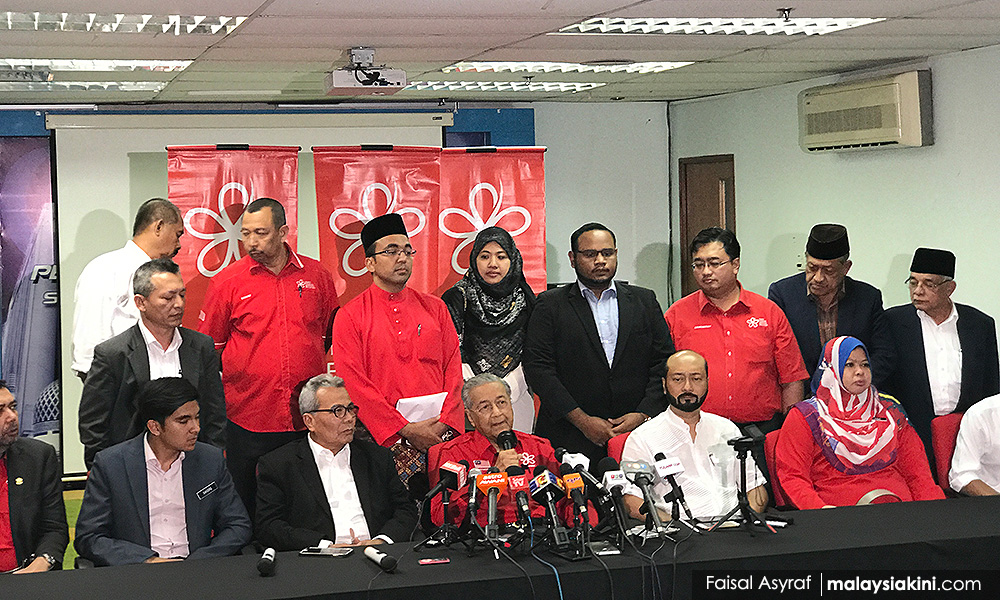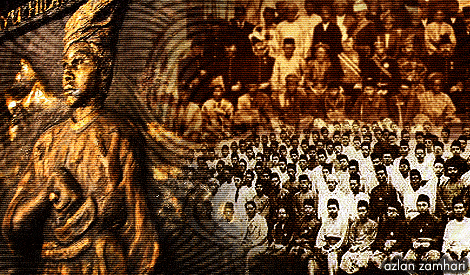COMMENT | Ketuanan Melayu, as a word, is not enshrined in print in the Federal Constitution. On this count, Rais Yatim cannot be said to be exaggerating. Rais is not your run-of-the-mill leader either. He has a PhD in law from the University of London with a specialisation in the Malaysian Constitution and human rights.
As he correctly noted, Ketuanan Melayu is a "political battle cry" and is not written down anywhere in the Federal Constitution.
If anything, it should be the Yang di-Pertuan Agong, under the advice of the Malaysian prime minister, who should lead on how best to protect the rights of the Malays, especially when Malays are deemed to be under siege. Ketuanan Melayu does not and cannot mean Malay supremacy or Malay stewardship.
Be that as it may, when something is not in the Constitution, it can take on the weight of a compact social contract that is deemed important for all parties and the rakyat too.
KS Jomo once affirmed that the social contract of Malaysia is based on:
(i) Collective defence of Merdeka;
(ii) The Rukun Negara;
(iii) The National Economic Policy; and
(iv) Vision 2020
To be sure, there are other academicians who do not subscribe to this theory. But to the degree they don't, they are constitutional purists too; this makes them just like other Malaysians. But regardless of who is right or wrong, the key is the Middle Way, which applies to the issue of Ketuanan Melayu.
Stewardship and suzerainty, not supremacy, should be the operating words on the discourse and debate on how to operationalise Ketuanan Melayu with fairness, since Article 8 of the Federal Constitution demands the fair treatment of other races viz a viz Article 153 that protects the rights of the Malays as, Rais made clear.

Indeed, supremacist Malays must not lord over the others - democracy is not tyranny over the minority - nor shall others attempt to belittle fair-minded Malays by being an aggressive minority. This is the principle of the golden mean that should be attained. Neither sides are too brash or too brutal about what they want. They always discuss everything in a civil manner.
In a multi-racial society, not every civil rule of coexistence can, and must, be written down too. All sides must learn to agree to disagree agreeably. In corporate talk, Google abbreviated their own considerable power as "Don't do evil". In the Hippocratic Oath, it is rendered as, "Thou shalt do no harm". In Confucianism, it is defined as "Not doing something which you do not want others to do unto you."
England, for example, has no written Constitution. Yet it is steeped in democratic tradition. It continues to function without a written text. The wisdom, values and written judgments of the ancient judges are accepted as the canons of English jurisprudence, which can and has guided the organic evolution of the United Kingdom, of which England is but a part.
Ketuanan Melayu, too, can find the point of convergence with or without a puritanical view of the Malaysian constitution. The key is to be fair and agreeable. In Arabic word, "adl" refers to that constant need to adjust oneself to the middle of the saddle when riding a camel that gently sashays through the desert.
But, as things are, Ketuanan Melayu is not completely a silent legal right that is forever dormant as well. Under Article 153, there are a long list of rights that seek to preserve the power and authority of the Malays in the federation, be it the role of Islam, the king, the nine sultans and indeed, the language right down to the economic lot of all Malays.
By this token, Ketuanan Melayu is often seen as a concept that any Malay government must defend, promote and practice. This is what Rais called a "political battle cry." Doing all three well also requires a sensitive and utilitarian understanding of how to grow the economic pie or the gross domestic product (GDP) of Malaysia.
Negative externalities
Thus when the economic pie is indeed grown, equitable sharing of the wealth can be done. The bigger the cake, the bigger slice of one's stake in the GDP. But how is Ketuanan Melayu worked out beyond the legal realm?
In 1970, the first mathematical formula to be tested and tried on Ketuanan Melayu in the economic form was to ensure that all companies have a 30 percent equity that belongs to the bumiputera. This was known as the National Economic Policy (NEP).
To prevent abuse, the formula was capped between 1970-1990. Since it was vaguely successful, NEP was continued with the help of some 97 bumiputera development aid agencies (according to The Edge Malaysia) which has, to date, spawned 1,174 companies.
Since theft and leakage and kleptocracy became the norm between June 2009 and May 2018 after which Pakatan Harapan was swiftly elected with Malay and Malaysian votes, some spoke of ending the Ketuanan Melayu with those excesses and negative externalities in mind.

It is impossible for Bersatu to end Ketuanan Melayu when Dr Mahathir Mohamad, the chair of the party, is often trying to find ways to improve it. If it is not through infant industries programmes, it is through the targeted petrol subsidies, on top of which higher dividends are paid to encourage Malays to save in PBN and BSN since the 1970s. The Tabung Haji and LTAT remain in place as are Khazanah, EPF and the Ministry of Finance Inc.
In 1990, when NEP came up for review, Mahathir also spoke to the Malaysian Business Congress directly, to enunciate what was then, and is still, known as the Wawasan 2020 or Vision 2020. It was predicted by the Institute of Strategic and International Studies (Isis) then that Malaysia could become a developed economy with a per capita income of US$12,500 a year if the country could grow at a clip of 7.5 percent a year until 2020.
But as the Asian Financial Crisis of 1997-1998 has shown, if Malaysia is not careful economically, Ketuanan Melayu can be a hollow shell, too, since a weak Malaysian ringgit can come under international speculation to affect the financial well-being of Malays and Malaysians anyway. What good is a concept in theory if it is devoid of any concrete meaning in practice?
Be that as it may, all is not lost. The prime minister recently declared that Malaysia can be a developed country, economically, socially and morally, by 2025.
Ketuanan Melayu, in other words, is still within grasp and is more practical when backed by strong economic fundamentals. It is also a concept that must be seen side-by-side with Kedaulatan Melayu and Keutuhan Melayu - where the economic backbone of Malaysia is strong to protect the federation, the state, the people and the sultans.
Prophet Muhammad (Peace Be Upon Him) used to pray that he be spared of the onerous "duties" of perpetual repayment of debt. Pakatan Harapan is against high national debt too, where the revenues of Malaysia - precisely the Federation of Malaysia - are constantly diverted to pay for interest that accrues from debts.
Unless Malaysia is economically strong and impervious to any form of financial "overstretch" one should not be caught in a vice-like situation of being tied down by the heady debates on Ketuanan Melayu.
If Malays and Malaysians, on May 9, had not elected a democratic government, what then is the meaning of Ketuanan Melayu if our economy - and political system - is perpetually vulnerable to foreign manipulation and theft?
Ketuanan Melayu has to be understood within the right context and guided by the right motivation not to dominate but to excel at producing and sharing wealth across the board. Yes, equitably-shared prosperity.
RAIS HUSSIN is a supreme council member of Bersatu. He also heads its policy and strategy bureau.
The views expressed here are those of the author/contributor and do not necessarily represent the views of Malaysiakini.


